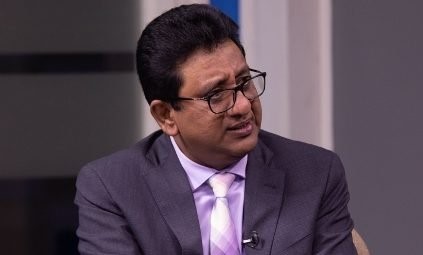Coalition lawyers in disarray, says Attorney-General
LEGAL Affairs Minister and Attorney-General, Anil Nandlall said it appears as though the lawyers appearing for the petitioners in the Elections Petition cases are in disarray.
He made the observation during an interview with the Department of Public Information (DPI) on Friday, while explaining that the attorney-at-law for one of the applicants, Mayo Robertson, contradicted himself whilst objecting to the interlocutory application he’d made.
On November 10, Nandlall filed an interlocutory application to have the case struck out, on the ground that it did not comply with Section 8 of the National Assembly Validity of Elections Act. In essence, he is contending that the matter was not served within the timeline fixed by the law.
On November 24, when the application was heard, Robertson argued that the AG’s application was improper, and should not be allowed, based on the grounds that the AG was not granted permission by the court to file the application, and the procedural mode used was incorrect.
Nandlall explained that he conceded before the court that he did not receive permission, however, it was necessary to file the proceedings, since his submissions depended on factual ingredients present within the application.
He explained that the election rules and regulations set out in the National Assembly Validity of Elections Act are silent on the question of the procedural mode that one is to employ, if one wishes to strike out an elections petition on the ground of non-service.
However, the Attorney-General explained that he utilised the modus operandi that was cemented in law through judicial precedent.
“What lawyers did, is if it is an interlocutory application (an application to strike out), you use the mode of procedure that is extant under the current High Court rules, and you use that as the mode to do the striking out. And courts have approved that for over 100 years,” he explained.
Nandlall explained that in his presentation to the court, he highlighted that the attorneys representing the petitioners utilised the identical procedure when they were confronted with situations where the electoral rules did not provide for certain situations.
AN IMPLOSION
“It is clear that the lawyers who are appearing in these petitions for the petitioners, are in disarray, because one is objecting to exactly what the other did, and they are on the same side. So, clearly, there is an implosion; there is some degree of confusion within and amongst the ranks of the lawyers,” he stressed.
He further noted that the “disarray” is further represented in the fact that he was served with a notice from former President David Granger, one of the respondents to the petition, explaining that he will not be contesting or opposing the petition.
“Having named Mr. David Granger a respondent, and having sued Mr. David Granger, they now got Basil Williams to file a notice to the court to say David Granger is not opposing the petition. So, one is left to ask, ‘Well, why name him in the first place,’” Nandlall stressed.
Nandlall stated that the attorneys for the applications may seem to be of the opinion that by having former President David Granger not oppose the petition, the issue of non-service might no longer exist.
“Perhaps they think that if they now get Mr. Granger to put in this document to say that he is not opposing the petition, then the argument that the petition was not served properly on Mr. Granger, was served late on Mr. Granger would be neutralized,” he explained.
However, Nandlall explained that “perhaps they think that to circumvent this identified and proven deficiency, they can now get Mr. Granger to file this document to say I am not opposing. And if that is their thinking, again, they are wrong, because whether a person is a proper respondent, and whether that respondent, having been named, can exercise a right which the law gives him not to oppose are mutually exclusive concepts.”
The Court, on November 24, accepted the interlocutory application filed by the Attorney-General, and it will be treated as part of one of two election petition cases before the High Court.
The case was adjourned to November 30 for continuation of the submissions on the applications to strike out the petition on the ground of non-service.






















